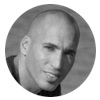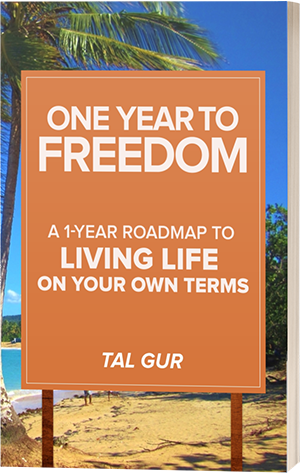What happens when a lawyer takes a one year hiatus to travel the globe? If she finds her true passion, that one year turns into five and the world of lawyering vanishes before her eyes. Jodi Ettenberg had planned to take one year to travel and then return to NY and work in the field of law. She started a blog about her travels to keep her family and friends updated on her goings on. Little did she realize that little blog and one year of travel would turn into her new career!
Jodi’s blog grew from a place where close friends and family checked in on her to an online presence filled with pictures, advice, personal musings, and interesting travel stories. Her following grew exponentially and people started to solicit her for writing, speaking engagements, and even to purchase her photographs. What Jodi found is that she could make a living off doing what she enjoys to do – traveling and eating around the world.
Now the author of her own book, “The Food Traveler’s Handbook”, Jodi shares her thoughts about cuisine around the world and the role it plays in bridging cultures, plus helpful tips for those who have food restrictions.
Please enjoy my interview with this inspiring woman.
Hey Jodi, What was the biggest dream that you went after? What ultimately led you to the decision to make a lifestyle change?
The dream I went after was to travel around the world for a year, taking the time to see and explore. I had long wanted to do this (I’ve written about a documentary on the Trans-Siberian trains as being a big influence for that), but I didn’t quit my job to be something else. I just thought I would take a career break and return to the law in a different sphere – in the public sector, or in-house. The “Lawyer burns out. Lawyer quits job to travel and be a travel writer” trope exists, but it’s not me. I understand how it’s a compelling narrative, though!
I had long planned to do this trip, so nothing specific ultimately led me to it. It was a slower process of saving up to travel, thinking of where I wanted to go and what I wanted to do, and when I had saved enough, taking the plunge. When in New York and the culture was skewed toward consumption, I certainly partook in many ways. I just measured my purchases in terms of how far they would get me on the road. E.g. “that pair of shoes could very well be an air ticket somewhere fun”. Now that I’ve been on the road for close to five years, I realize just how much more cheaply I could live abroad. At the time, I didn’t know it – but the opportunity cost measurements certainly helped make this trip a reality and kept me to my goals of saving to travel.
When did you realize that you were not going to go back to lawyering in New York? Was it a sudden epiphany or something that slowly crept up on you?
It was neither, really. I just started receiving more options to do work and I figured that I would see where it took me. It isn’t that I said “I’ll never be a lawyer again” – one never knows what comes next! But given that I was enjoying a newfound way to exercise my brain, getting new opportunities to get better at it and still making it work while living in new places, I thought I would follow the opportunities. If it doesn’t work out, so be it. But it’s been extremely rewarding thus far and I’ve been very grateful to live in a world where I can build this kind of life.
What does your lifestyle look like today? In total, how many hours do you work every week? Do you have a fixed work routine?
I don’t know how many hours I work, but it’s more than I ever thought I’d be working. It’s satisfying when it’s something you love, however. Sure, I could be working less hours in a more traditional job, but then I wouldn’t be building out a business of my own.
Writing the book took me many, many long days of writing and nothing more, and now that it’s done I am able to plant myself somewhere specific (in this case, Vietnam) and work on other projects. I do try to set a routine of work and often find co-working spaces in town in lieu of cafes, trying to improve on productivity and the like while also affording myself a chance to explore where I am temporarily based.
The original trip was one or more years of travel without working. I didn’t even have a laptop with me when I left in 2008. But now that the travel is less travel and more “writing somewhere fun”, I’ve slowed down considerably. I try to get up and do some exercise and then start working on a creative task early, tackling the bulk of the emails later in the day. After I eat some soup, of course. 🙂
Why food? You mentioned that you got the urge to travel when you were in high school and saw a documentary about trains. This sparked your imagination to wonder about where those trains could take people around the world. How did you get the desire to sample foods from around the world and more than that, to write often about these culinary experiences?
It just happened gradually as I travelled. Bit by bit, my days were focused on food, my thoughts were drawn to it and I wanted to learn more about the history of a place through its meals and food traditions. There wasn’t anything in particular, other than seeing how different cultures ate and comparing them in interesting ways. The curiosity to see and do still exists, but in a way it has transferred to doing so through the lens of food.
Your book “The Food Traveler’s Handbook” is a hands-on guide to how one can find cheap, safe food in countries around the world. You also mentioned on your blog that your handbook also “addresses why food matters and how travelers can explore the world through the many ingredients we find on our plates.” Can you explain more about this concept?
The first part of the book is primarily dedicated to this phrase. It’s nothing new – people travel for UNESCO sites or they travel to visit certain types of buildings or historical settings. I travel for those things too, but through the lens of what people eat. So Vietnamese food, where I am now, includes its popular Pho soup. In looking at pho – why it is different in the North and the South, how people’s attitudes differ one versus the other place, the recipes, the traditions and how they’ve changed for those who left the country during the war – all of that comprises the history/culture aspect but it’s examined through eating.
It’s not for everyone but I think many people overlook food as a learning tool, so the book was a chance for me to advocate just that.
You have a lot of great advice on your website about the “how tos” of traveling. What would your say to someone who asked “Why do you travel so much?”
I would say “I don’t really travel any longer” 😉 I started out traveling in a traditional “year around the world” sense, but now I am living 4-5 months somewhere to really get to know a place. I use those places as a base to see the surrounding region, and my bigger travel spurts actually come when I go back to North America for conferences or family obligations. For a food focus it is also necessary to stay in a place for at least a few months. After just a few weeks, you can’t say you really understand how a place eats or why – the time is needed. Plus, many more things to eat.
If your question is more why would anyone travel, well, it’s my belief that it truly puts your own life and choices into perspective, and helps you see the world as a more interconnected place, something that is very important as a global citizen. But long term or frequent travel is not for everyone, and I do not begrudge anyone who prefers to stay in a stable job but take shorter trips. I’d never say my lifestyle is better; it’s just what happens to work for me.
There are some real fears that women might have about traveling alone around the world. What would you say to them that might ease their fears?
I have just written a long post about this, so I would refer them to it -> http://www.legalnomads.com/2013/02/female-solo-travel.html
There are valid fears, of course, but solo travel tips are applicable to both genders, not just women. Common sense applies to all travelers, but the fears are understandable. I think it is daunting to travel alone, but in many countries I feel safer as a woman than I do in North America.
Out of all the places you have been, where has been your favorite so far and why? When you first started traveling, how did you decide where you wanted to go?
Too many favourites to narrow it down. I’ve loved my time in almost every country, to the point where my parents now roll their eyes when I say “I love it here!” (Them: yes, Jodi – of course you do.)
I decide based on what’s going on at the time – is there somewhere I want to go, some food I want to learn more about, or a place friends are congregating in the near future? Very last minute decisions, usually!
Finally, what is your message to someone who’s about to embark on his dream?
Like anything, it’s a highly subjective decision and my message would differ depending on the person’s goals and what that dream actually entailed. Overall, though, I’d say that there’s no shame in not having a fixed plan so long as you’ve built out a worst case scenario if things go wrong. The rest is all about learning as you go, taking things that come your way and making decisions then, and trying to learn as much as possible from everyone you meet.
Thank You
—-
Jodi Ettenberg is a former lawyer currently traveling (and eating!) her way around the world, one country at a time. You can find her at legalnomads.com and on Twitter @legalnomads
Author
 Tal Gur is a world traveler and personal development enthusiast. An adventurer at heart, after trading his daily grind for a life of his own daring design, Tal spent a decade pursuing 100 major life goals around the globe. His journey continues as a location-independent blogger, lifestyle entrepreneur, and coach. Tal’s published two books: One Year to Freedom, a 1-Year Roadmap to Living Life on Your Own Terms; and, his most recent book and bestseller, The Art of Fully Living – 1 Man, 10 Years, 100 Life Goals Around the World.
Tal Gur is a world traveler and personal development enthusiast. An adventurer at heart, after trading his daily grind for a life of his own daring design, Tal spent a decade pursuing 100 major life goals around the globe. His journey continues as a location-independent blogger, lifestyle entrepreneur, and coach. Tal’s published two books: One Year to Freedom, a 1-Year Roadmap to Living Life on Your Own Terms; and, his most recent book and bestseller, The Art of Fully Living – 1 Man, 10 Years, 100 Life Goals Around the World.





